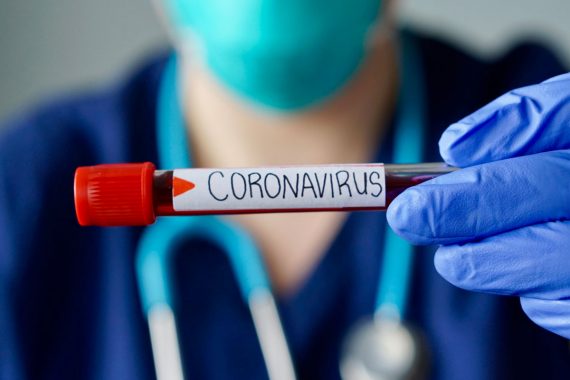The monoclonal antibody treatment sotrovimab is more effective at reducing severe illness in Covid-19 than the antiviral drug molnupiravir, an analysis of UK patients has shown.
Comparison of the treatments given in the community in England between December 2021 and February 2022 showed that of more than 6,000 patients with a mean age of 52 years, 87 of those were admitted to hospital within four weeks of treatment, 32 who had been treated with sotrovimab and 55 with molnupiravir.
Taking into account demographic information, risk categories, comorbidities, body mass index and other factors, the researchers found that those taking sotrovimab were 46% less likely to be admitted to hospital or die in the following 28 days.
Further analysis showed the results were consistent when only including fully vaccinated people and also amongst patients treated between February and May 2022 when the BA.2 omicron variant of Covid-19 was dominant, the researchers reported in the BMJ.
The team from concluded that the ‘real-world findings within a time period when both drugs were frequently prescribed and when new variants of Covid-19 were circulating provide evidence of current effectiveness of sotrovimab over molnupiravir’.
Molnupiravir had already been downgraded for routine clinical use for patients in the community leaving sotrovimab and Paxlovid, the researchers noted.
But the paper comes as NICE published draft recommendations on three treatments for Covid-19 which did not include sotrovimab, which one expert said was a ‘surprising omission’.
In a document out for consultation, NICE recommended Pfizer’s combined antiviral nirmatrelvir plus ritonavir (Paxlovid) for treatment outside of hospital but not molnupiravir, sotrovimab, remdesivir, or tixagevimab plus cilagavimab (Evusheld).
For patients in hospital on oxygen NICE recommended tocilizumab and baricitinib, which still needs approval in the UK by drug regulators.
Helen Knight, interim director of medicines evaluation at NICE, said: ‘Our task has been to evaluate the clinical and cost-effectiveness of treatments for Covid-19, many of which are currently being made available in England under interim UK-wide pandemic-specific access arrangements.
‘In doing so we need to strike a balance between the effectiveness of a treatment and the best use of public funding as we come out of the pandemic, to ensure the NHS can continue to deliver maximum value to the taxpayer.’
She added that the evidence for all the treatments looked at was highly uncertain because they were done before Omicron but were ready to work with companies and NHS England, to explore whether there is scope for any commercial or other solutions to address the issues highlighted by the committee.
Dr Stephen Griffin, associate professor at Leeds Institute of Medical Research, said NICE had a difficult job to do in appraising the cost effectiveness of the medicines but he struggled with some of the logic.
‘In particular, I am astonished at the decision not to approve the Evusheld combination antibody,’ he said adding that as a prophylactic therapy it could help clinically vulnerable people to make informed choices on how to de-risk their lives.
‘Sotrovimab is also a surprising omission, given that it too appears to retain activity against circulating strains.
‘It is important to remember that for all antibody therapies, whilst many do indeed show marked reductions in activity for newer Omicron subvariants in the laboratory, how this relates to the threshold of protection in real life is quite another question.’
Pulse October survey
Take our July 2025 survey to potentially win £1.000 worth of tokens













